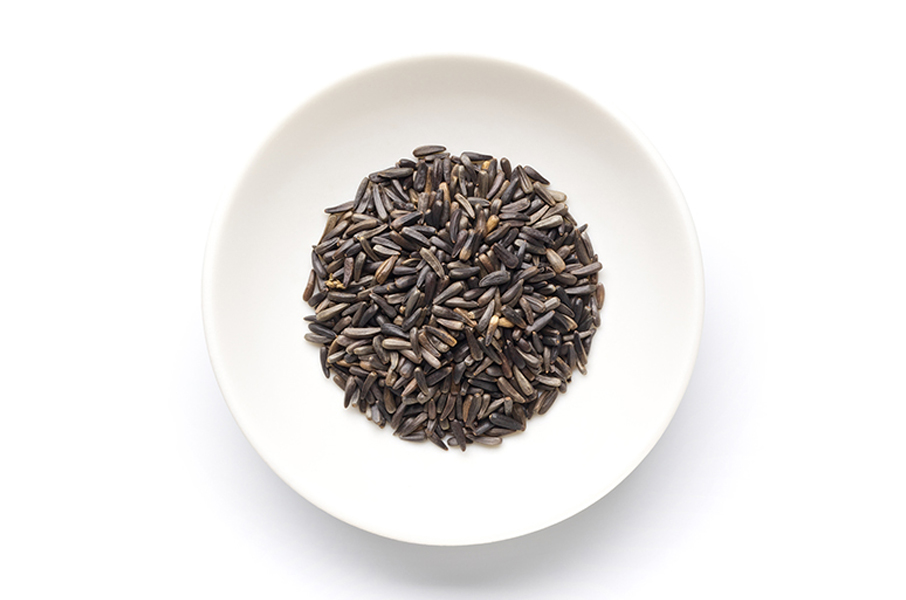A closer look into the quality standards of Niger seeds, a source of nutritious oils
04/21/2020 / By Evangelyn Rodriguez

Guizotia abyssinica, locally known as ramtil or niger seed, is an annual plant that’s native to Ethiopia but is also widely used in India. This branched herb has an erect, stout stem and seeds that are said to be a rich source of edible oil. This edible oil possesses a high nutritional index and is used for a variety of culinary and medicinal purposes.
Despite its widespread use, particularly in the southern parts of India, there is a lack of information regarding the quality standards, chemical profile and biological activities of niger seed and its components. Hence researchers at the Sri Dharmasthala Manjunatheshwara College of Ayurveda in India decided to investigate the pharmacognostic, physicochemical and phytochemical characteristics of niger seed. They discussed their findings in an article published in The Journal of Phytopharmacology.
Niger seeds are an excellent source of medicinally useful and nutritious edible oil
The black seeds of G. abyssinica, which are narrowly long like a needle and with white or yellow scars, are one of its most important and useful parts. People in India extract a nutrient-dense oil from these seeds that they subsequently use for cooking. In the south of India, niger seed oil is also used to prepare dry chutney, a spicy condiment native to the country that is made by combining different fruits, vegetables, vinegar, spices and sugar.
Niger seeds are said to contain a variety of nutritional components: about 30 to 40 percent of it is oil; 10 to 25 percent is protein; 12 to 18 percent is sugar; 10 to 20 percent is fiber; and 10 to 11 percent is moisture. Niger seed oil, on the other hand, is reported to be a mixture of triglycerides, long-chain fatty acids like palmitic acid and stearic acid, and the medium-chain fatty acid, lauric acid.
Besides cooking, niger seed oil is used in the preparation of soaps, paints and other lubricants. What is left of the seed after oil extraction is then used as cattle feed, organic fertilizer or fuel. Meanwhile, the powder made from niger seeds is used as a natural remedy for cough, while niger seed oil is used to relieve symptoms of rheumatism. (Related: More effective than drugs: Indian Lycium alleviates symptoms of rheumatism.)
For their study, the researchers collected matured niger seeds and used microscopy and chromatography to determine their physical characteristics and identify their chemical components. Microscopic study showed that the seeds have an epidermis and an endodermis that’s filled with aleurone grains (protein stored as granules) and oil globules. The researchers also found that niger seeds are more soluble in alcohol than in water.
Chromatographic analysis, on the other hand, allowed them to detect the presence of alkaloids, plant steroids, carbohydrates, terpenoids and coumarins in niger seeds. These plant nutrients have various therapeutic properties.
For instance, studies have found that plant steroids have anti-tumor, immune-suppressing, liver-protective and antibacterial activities, to name a few. Meanwhile, terpenoids have antimicrobial, anti-allergenic, chemopreventive, anti-inflammatory and immune-modulating properties. Coumarins, which are volatile yet active compounds, have anti-inflammatory, antioxidant, blood sugar-lowering, antibacterial and anti-cancer properties.
Based on these findings, the researchers concluded that niger seeds are a nutritious source of edible oil with therapeutic applications, thanks to their abundance in phytonutrients.
Other health benefits of niger seed oil
Niger seeds are technically not seeds, but are, in fact, fruits called achenes. In botany, achenes are defined as small, dry one-seeded fruits that do not open to release their seed. Nevertheless, niger seeds are still referred to as seeds, mainly due to their similarities to sunflower seeds in terms of appearance.
Niger seeds are grown in large quantities due to the versatile, edible oil they produce. Niger seed oil is a great substitute to sunflower oil and olive oil and possesses plenty of medicinal properties. Here are eight health benefits offered by niger seed oil:
- Improves sleep due to its magnesium, potassium and zinc content
- Boosts heart health by lowering blood cholesterol levels
- Stimulates healing of wounds, burns or rashes and soothes inflammation
- Accelerates wound healing
- Provides antioxidants that prevent inflammation
- Relieves gastrointestinal issues
- Promotes healthy weight gain
- Boosts the immune system
Niger seed oil is a useful and nutritious edible oil that would make a great addition to recipes or a natural topical remedy. For more news about niger seeds and other medicinal plants, visit PlantMedicine.news.
Sources include:
PhytoPharmaJournal.com 1 [PDF]
PhytoPharmaJournal.com 2 [PDF]
Tagged Under: #nutrition, edible oil, food cures, food is medicine, food science, functional food, natural cures, natural medicine, niger seed oil, niger seeds, phytonutrients, ramtil, remedies, research, seeds



















